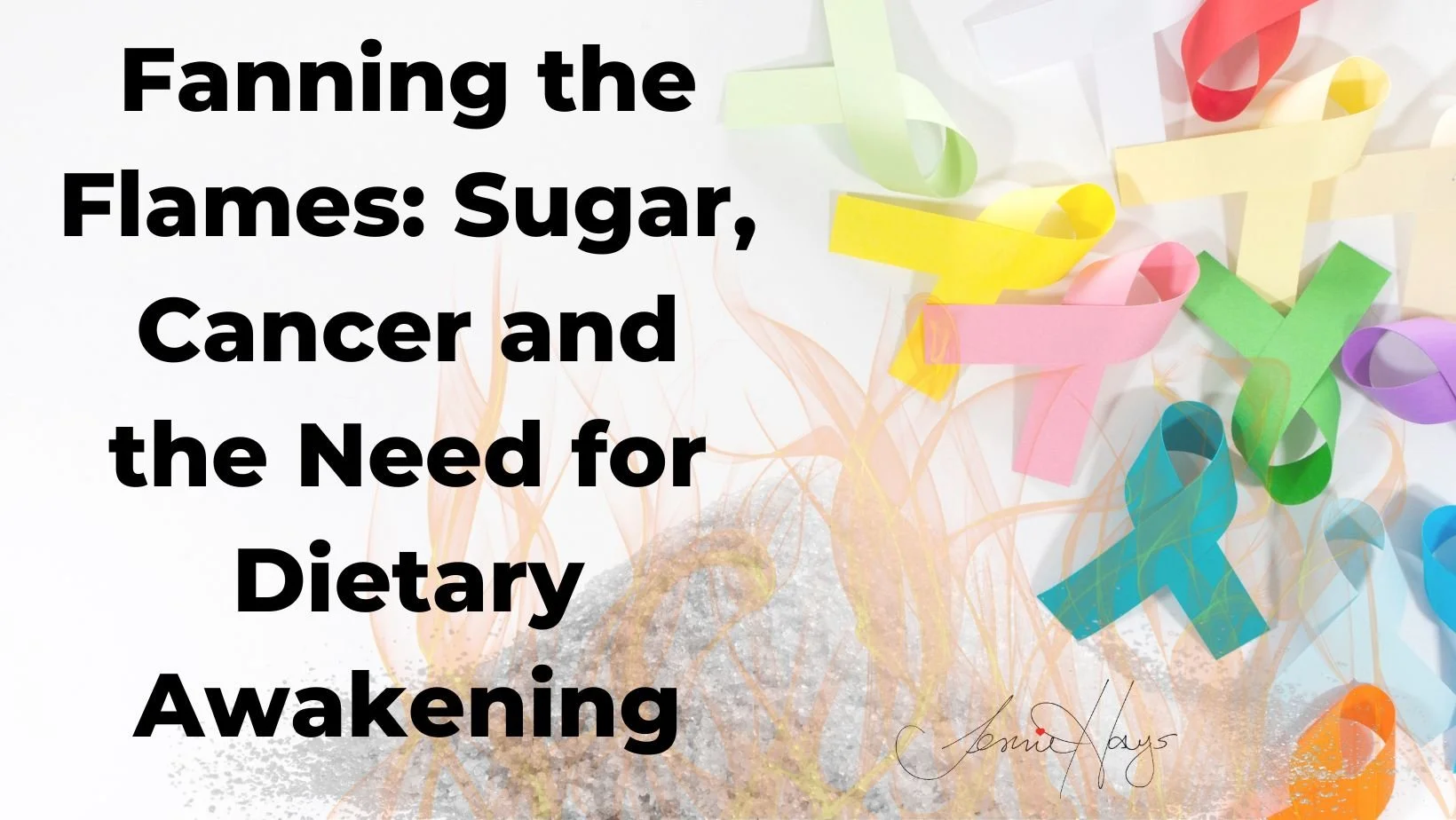Fanning the Flames: Sugar, Cancer and the Need for Dietary Awakening
I am writing this piece today from a place of frustration and, yes, anger. In my hands, I hold an article from a widely-respected news source, The New York Times, that puts forth a dangerously misleading narrative: that cutting sugar from our diets has no significant effect on existing tumors. Reading this article, I found myself simmering with indignation. Not only because I fervently believe that this narrative contradicts both scientific evidence and personal experience, but also because I am compelled to consider how many lives could have been potentially extended, if not saved if a different narrative was told.
My Personal Connection to Cancer
My journey with cancer is intensely personal. My mother-in-law fell to breast cancer. My mother was taken by liver cancer. A dear friend of mine lost the battle to lung cancer. All three forms of this ruthless disease have been shown in various scientific studies to respond positively to a ketogenic diet—a low-carb, high-fat diet that fundamentally changes the way our bodies process energy. If only they had been given this knowledge, had the chance to try it. But our medical system often fails to recognize the profound impacts our diets can have on our health.
The Science Behind Sugar and Cancer
Let's look at the evidence. A review of various scientific studies shows a considerable anti-tumor effect of the ketogenic diet on many types of cancer. For glioblastoma, out of eight studies, six showed an anti-tumor effect. Both breast and lung cancers showed a strong anti-tumor response in the only two studies conducted for each. Stomach and liver cancers also responded positively to the ketogenic diet in single studies conducted. The verdict for prostate cancer is more mixed, but the majority still showed an anti-tumor effect.
Of course, there are exceptions. Not all cancers behave the same, and diet changes might not always be the most effective supplementary approach for all patients. For instance, the ketogenic diet did not prevent melanoma in a preventative setting. But as a rule of thumb, the overarching evidence points to the effectiveness of a low-sugar diet in tackling many types of cancers.
The Forgotten Connection Between Sugar and Cancer
The idea that sugar fuels cancer is not new. It dates back to the 1920s when a German physiologist noticed that some tumor cells consumed more glucose than healthy cells. The rationale is simple: deprive these glucose-hungry cancer cells of their fuel, and you starve the tumor. However, despite nearly a century of mounting evidence, this idea is not mainstream in oncology.
The assertion that many cancers thrive on glucose is not just theoretical - it's observable and quantifiable. Positron Emission Tomography (PET) scans, a cornerstone of modern medical imaging, demonstrate this clearly. In a PET scan, a radioactive drug (tracer) is used which is essentially radioactive glucose. Areas of higher metabolic activity, often indicative of disease, attract this tracer and show up more prominently in the images. Cancers with high metabolic rates – often referred to as being "PET positive" – visibly 'light up' during these scans, clearly consuming glucose at a higher rate than surrounding tissues. This further supports the idea that depriving them of their primary fuel source could help in their management.
This is where my anger comes from. The dismissal, or at least the downplaying, of dietary interventions in the fight against cancer is costing lives. By all means, sugar might not be a standalone miracle cure, but dismissing its role is like pouring gasoline on a fire.
An Appeal for Dietary Interventions in Cancer Treatment
As a society, we need to wake up to the truth about the food we consume and its effects on our bodies. It's high time we stop pretending that our diets don't impact our health. We owe it to ourselves and our loved ones to question, explore and push for more awareness about the relationship between our diets and diseases.
The last thing I want to do is to instill false hope or peddle snake oil. There's no guaranteed cure for cancer, and many people, unfortunately, still lose their lives to it despite doing everything "right". But as long as there's a chance, a possibility that changing our diet can improve our prognosis or extend our lives, shouldn't we at least explore it, shout it from the rooftops, and not bury it in the depths of medical literature?
A Call to Action
It's time for an awakening. It's time we take control of our health and explore all possible avenues in the fight against cancer, including what we put on our plates. We deserve a fuller understanding of our diseases and we deserve a fighting chance. Don't sit back and accept the status quo. Book a call with me today and let's work together to challenge it.
Special thanks to Nick Norwitz whom I follow on Twitter for sharing the NYTimes article and the information about the studies. You can learn more and follow him here: https://twitter.com/nicknorwitz


